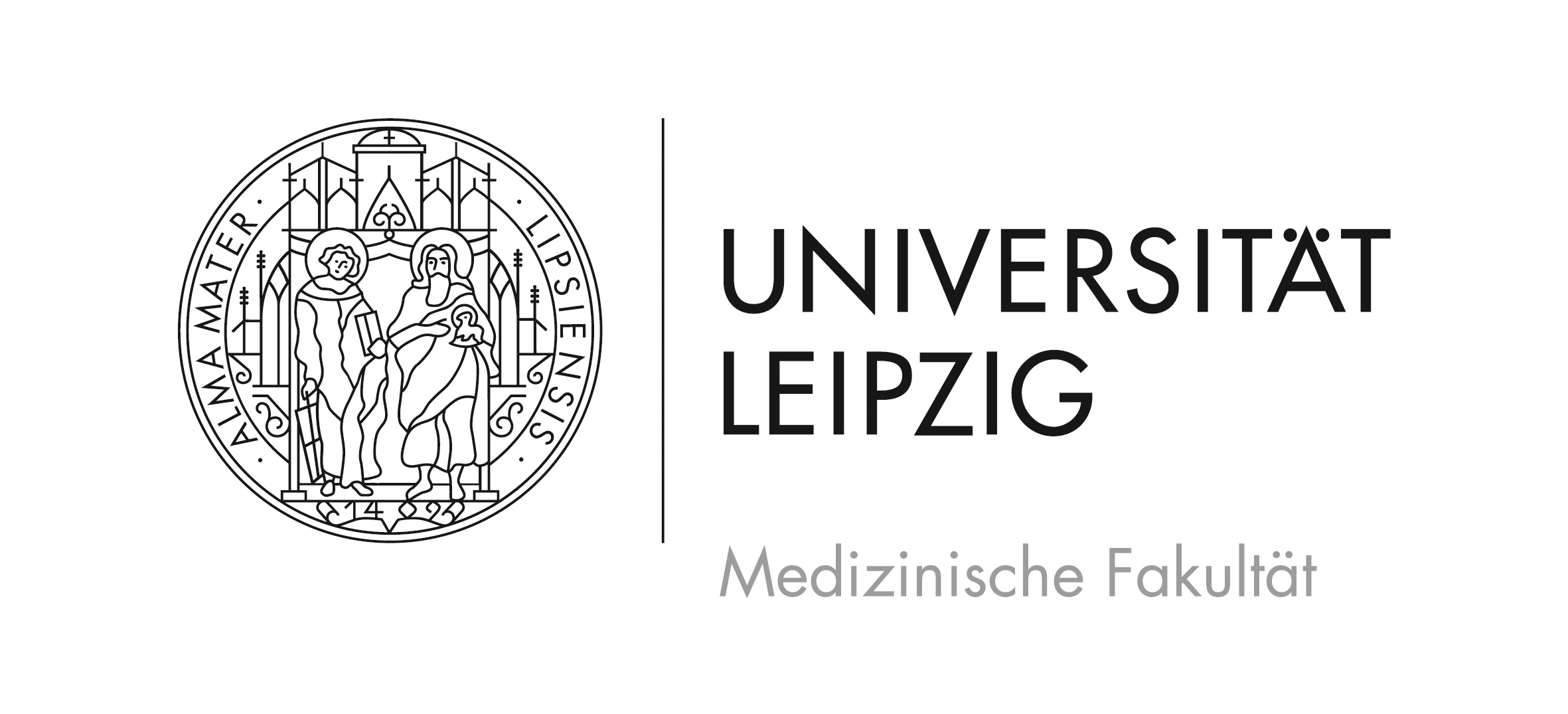Research Interests
Natural Products Pharmacology
Our research focuses on bioactivity testing of medicinal plants and natural products.
With a diverse repertoire of methods from cell and molecular biology, protein biochemistry, microscopy, histological examination and synergy research using cell/tissue cultures and isolated organs, and investigations on isolated organs, we concentrate on the interaction of natural substances and pathophysiological targets of multifactorial diseases.
In this regard, our research is oriented towards pharmacological aspects of natural products research with the aim to:
- elucidate modes of action of naturally derived substances,
- identify and tackle new therapeutic target structures and
- provide/design/develop innovative biological test set-ups for the investigation of new active substances.
In order to determine new active priciples, we place particular emphasis on the recapitulation and systematic investigation of nature-based healing approaches from Europe and West Africa.
Natural Products Research Utilizing Cell and Tissue Culture Models
In drug research, cell and tissue culture models are useful tools to investigate pharmacological and pharmacokinetic properties of drugs without the need for laboratory animals. They offer the advantage of modelling specific pathophysiological conditions and generate reproducible results in a simplified microenvironment which allows to examine detailed mechanisms of action.
In order to investigate pharmacological agents for the treatment of inflammatory diseases, more-dimensional cell culture models which involve epithelial cell lines as well as immune effector cells can be utilized. Thus, the influence of the drug on immune response (cytokine-/chemokine signaling) and barrier function (intestinal permeability, mucus production, epithelial cell growth etc.) can be monitored.
Furthermore, cellular uptake and metabolism studies using HPLC/LC-MS techniques allow critical interpretation of the obtained in vitro data on pharmacological properties.
Traditional Natural Medicine of Western Africa
All human cultures throughout time have utilized plants and natural remedies as a source of medicine and healing strategies. The African continent features areas with extremely high biodiversity and high levels of endemism, indicating that many of the continent’s plant resources are uniquely African. Traditional medicine in Africa is therefore based on a broad ethnomedicinal knowledge and represents a major socio-cultural heritage, which has accumulated during the last millennials and features valuable and unique ethnomedicinal information. Today, modern biochemical and molecular biological methods allow systematic investigation of these medicinal healing strategies based on naturally occurring remedies (such as plants or insects). Research aims focus on the rationalization of traditional natural medicines of Western Africa by documentation and systematic phytochemical and pharmacological investigation.
Principal Investigator
PD Dr. Cica Vissiennon

Härtelstr. 16-18, 04107 Leipzig
Room 354
Phone +49(0)341 97-15772
Email
Team
Personal
Overall scientific expertise
Educational background in pharmacy with a PhD in pharmacology. Past professional involvement focused on research activities in the field of pharmacology and pharmacokinetics of herbal medicines and phytochemicals at the University of Florida and the University of Leipzig, and regulatory activities in the field of traditional herbal medicines in Europe at the European Medicines Agency – HMPC (Committee on Herbal Medicinal Products) secretariat and the Commission E for Herbal Medicinal Products at the Federal Institute for Drugs and Medical Devices. As an Advisory Board member of the “Society for Medicinal Plant and Natural Product Research”, she chairs the committee “African Research Network”, which aims to foster the North-South dialogue by strengthening the partnership between Europe and Africa.
Education/Professional Experience
| 2023 | Habilitation (pharmacology and toxicology, Leipzig University) |
| since 2017 | Research group leader (Leipzig University, Institute for Medical Physics and Biophysics) |
| 2015 – 2017 | Post-doctoral fellow (Leipzig University, Institute for Medical Physics and Biophysics) |
| 2015 | Doctorate (Dr. rer. nat.) (Leipzig University) |
| 2011 – 2015 | Doctoral candidate (Leipzig University, Institute of Pharmacy and Institute for Medical Physics and Biophysics) |
| 2010 – 2011 | European Medicines Agency, HMPC secretariat, London, UK |
| 2010 | Diploma in Pharmacy (University of Florida, Gainesville, FL, USA, in cooperation with Leipzig University |
| 2009 | Graduation in Pharmacy (Leipzig University) |
| 2007 – 2010 | Student Assistant (Leipzig University, Institute of Pharmacy and Institute for Medical Informatics, Statistics and Epidemiology) |
Memberships in Learned Societies
- Advisory Board member for the Society for Medicinal Plant and Natural Product Research (Gesellschaft für Arzneipflanzen- und Naturstoff-Forschung e.V.)
- Mitglied für den Fachbereich Pharmakologie/Toxikologie der Kommission nach § 25 Abs. 6 und 7 des Arzneimittelgesetzes für den humanmedizinischen Bereich, phytotherapeutische Therapierichtung (Kommission E) am Bundesinstitut für Arzneimittel und Medizinprodukte, Bonn
- Deutsche Pharmazeutische Gesellschaft
- Deutsche Gesellschaft für Viszeral- und Stoffwechselkrankheiten
- Society for Medicinal Plant and Natural Product Research (Advisory Board Member)
- Deutsche Gesellschaft für Neurogastroenterologie und Motilität
Publications
Journal Articles
- Vissiennon, C., Nieber, K., Kelber, O., Butterweck, V. Route of administration determines the anxiolytic activity of the flavonols kaempferol, quercetin and myricetin — are they prodrugs? J Nutr Biochem 23 (2012), 733–740.
- Vissiennon, C., Goos, K.-H., Goos, O., Nieber, K. Antispasmodic effects of myrrh due to calcium antagonistic effects in inflamed rat small intestinal preparations. Planta Med 81 (2015), 116–122.
- Marquardt, P., Vissiennon, C., Nieber, K., 2015. Medicinal plants in Benin: An analysis of traditionally used Beninese plants indexed in the Prota Database. Planta Med 81 (2015).
- Vissiennon C., Goos, K.H., Arnhold, J., Nieber, K., 2017. Mechanisms on spasmolytic and anti-inflammatory effects of a herbal medicinal product consisting of myrrh, chamomile flower, and coffee charcoal. Wien Med Wochenschr 167 (2017) 169-176.
- Vissiennon C., Hammoud, D., Goos KH., Nieber K., Arnhold J., 2017. Synergistic interactions of chamomile flower, myrrh and coffee charcoal in inhibiting pro-inflammatory chemokine release from activated human macrophages. Synergy 4 (2017) 13-18.
- Vissiennon, C., Hammoud, D., Rodewald S., Fester K., Goos KH., Nieber K., Arnhold J. Chamomile Flower, Myrrh, and Coffee Charcoal, Components of a Traditional Herbal Medicinal Product, Diminish Proinflammatory Activation in Human Macrophages. Planta Med. 83 (2017) 846-854.
- Vissiennon, C., Hammoud, D., Goos, K.-H., Nieber, K., Arnhold, J. Synergistic interactions of chamomile flower, myrrh and coffee charcoal in inhibiting pro-inflammatory chemokine release from activated human macrophages. Synergy 4 (2017) 13-18. [DOI]
- Weber, L., Hammoud Mahdi, D., Jankuhn, S., Lipowicz, B., Vissiennon, C. Bioactive plant compounds in coffee charcoal (coffeae carbo) extract inhibit cytokine release from activated human THP-1 macrophages. Molecules 24 (2019) e4263. [DOI; PubMed]
- Hammoud Mahdi, D., Hubert, J., Renault, J.H., Martinez, A., Schubert, A., Engel, K.M., Koudogobo, B., Vissiennon, Z., Ahyi, V., Nieber, K., Vissiennon, C. Chemical profile and antimicrobial activity of the fungus-growing termite strain macrotermes bellicosus used in the traditional medicine in the Republic of Benin. Molecules 25 (2020) 5015. [DOI; PubMed]
- Marquardt, P., Vissiennon, C., Schubert, A., Birkemeyer, C., Ahyi, V., Fester, K. Phytochemical analysis, in vitro anti-inflammatory and antimicrobial activity of piliostigma thonningii leaf extracts from Benin. Planta Med 86 (2020) 1269-1277. [DOI; PubMed]
- Weber, L., Kuck,. K., Jürgenliemk, G., Heilmann, J., Lipowicz, B., Vissiennon, C. Anti-inflammatory and barrier-stabilising effects of myrrh, coffee charcoal and chamomile flower extract in a co-culture cell model of the intestinal mucosa. Biomolecules 10 (2020) 1033. [DOI; PubMed]
- Hammoud Mahdi, D., Wissenbach, D.K., von Bergen, M., Vissiennon, Z., Chougourou, D., Nieber, K., Ahyi, V., Vissiennon, C. Ethnomedicinal survey and in vitro confirmation of anti-inflammatory and antispasmodic properties of the termite strain macrotermes bellicosus used in traditional medicine in the Republic of Benin. J Ethnopharmacol. 254 (2020) 112705. [DOI; PubMed]
- Marquardt, P., Seide, P., Vissiennon, C., Schubert, A., Birkemeyer, C., Ahyi, V., Fester, K. Phytochemical characterization and in vitro anti-inflammatory, antioxidant and antimicrobial activity of combretum collinum fresen leaves extracts from Benin. Molecules 25 (2020) 288. [DOI; PubMed]
- Roerig, J., Schiller, L., Kalwa, H., Hause, G., Vissiennon, C., Hacker, M.C., Wölk, C., Schulz-Siegmund, M. A focus on critical aspects of uptake and transport of milk-derived extracellular vesicles across the Caco-2 intestinal barrier model. Eur. J. Pharm. Biophar. 166 (2021) 61-74. [DOI, PubMed]
Events/Activities
The summer school on “Ethnopharmacological relevance: from bench to shelf, including intellectual property and bioprospecting acts“ took place from 15-19th May 2023 at the Future Africa Campus, University of Pretoria in South Africa.
The summer school was hosted by the University of Pretoria and the Leipzig University with financial support from the Volkswagen Foundation. The Society for Medicinal Plant and Natural Product Research (GA), in addition, sponsored the participation of African early career researchers via travel grants.
Aim of this training session was to equip young scientists from Europe and Africa with the knowledge and know-how of steering their natural product research towards successful commercialization.
Lectures covered aspects of field studies, in vitro/pre-clinical studies and clinical trials. In addition, lectures on Intellectual property rights, bioprospecting acts and sustainable harvesting of medicinal plants were included as essential considerations in the commercialization process.
Partner: Prof. Namrita Lall, Medicinal Plant Science (Department of Plant and Soil Science), University of Pretoria, South Africa
Funding: Volkswagen Foundation / Society of Medicinal Plants and Natural Products Research
During the next annual congress of the Society for Medicinal Plant and Natural Products Research, a Workshop to promote natural products research conducted in Africa will be organized. Aim of the „African Research Workshop on Natural Products Research 2019“ is to present and discuss natural products related research and to stimulate the dialogue between African scientists.
For further information visit the website of the Society for Medicinal Plant and Natural Products Research (https://www.ga-online.org/african-research-network)!
To kick off the DAAD-funded project on Access and Benefit Sharing – Sustainable Use of Biodiversity, we would like to invite you to a symposium to discuss the sustainable use of biodiversity in developing countries. This project aims to link the global interest in the protection and sustainable use of biodiversity (based on the regulations of the Nagoya protocol) to the university-based promotion of entrepreneurship. In order to achieve this, the project will facilitate the development of curricula for entrepreneurship promotion modules in biodiversity-related master programs at our partner Universities Makerere University in Uganda and IRGIB-Africa University in Benin.
During the symposium, we will discuss the Nagoya protocol and the resulting related access and benefit sharing aspects. Various experts will give input on how biodiversity is or can be used as a resource for business model creation and ultimately for the socioeconomic development.
We will end with a panel discussion on the role that higher education institutions can play in promoting entrepreneurship and business model development in order to generate economic incentives via conservation and sustainable use of biodiversity in line with the Nagoya Protocol.
Location:
Universität Leipzig
Institutsgebäude
Room Seminar room SR 8
Grimmaische Straße 12
04107 Leipzig
Partners:
International SEPT Program, University of Leipzig
IRGIB-Africa University, Benin
Makerere University, Uganda
In order to promote the ethnomedicinal abundance of Western Africa and elaborate practical solutions to preserve the traditional medicinal knowledge, leading scientists from Africa and Europe have gathered within an international workshop „Ethnomedicinal abundance of Western Africa – understanding and preserving the value of regional traditional natural medicines“ at the IRGIB-Africa University Campus in Cotonou, Benin, from 05-10 February 2018. This workshop was sponsored by the Volkswagen Foundation and jointly hosted by the University of Leipzig and the IRGIB-Africa University. The event was divided into a main workshop and a training session for young scientists (Young Researchers Camp).
The partnership between Leipzig University and IRGIB-Africa University (Benin, West Africa) is marked by regular academic and cultural exchange between the two universities. Joint research programmes focus on the documentation and evaluation of the indigenous traditional medicinal knowledge of Western Africa and the promotion of its integration into the existing regional health system.
To acknowledge the long-term partnership between our two universities, we organized this Partnership Symposium, which focused on the joint application of natural healing methods and medicinal plants. The purpose of this symposium was to highlight common grounds and differences within the traditional medicinal practices in our two cultures and to discover joint research fields.
